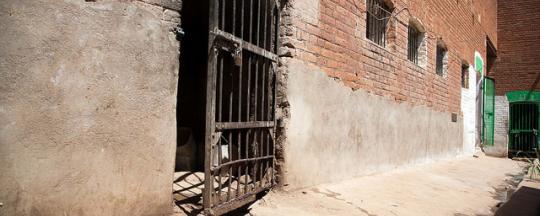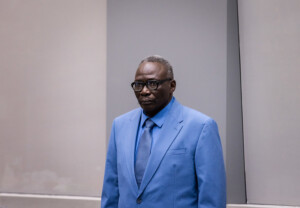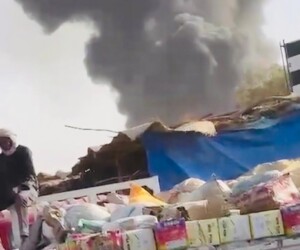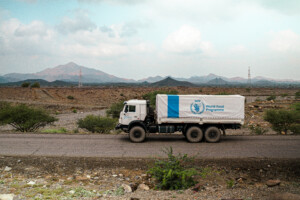Rulings without lawyers: Sudan’s legal professionals detained

Prison cell in Darfur (File photo: Albert González Farran / UNAMID)
As the war between the Sudanese Armed Forces (SAF) and the Rapid Support Forces (RSF) rages into its 14th month, enforced disappearances and detentions of activists, neighbourhood volunteers, and professionals, especially lawyers, continue unabated. With both warring parties accusing civilians of aligning with the opposition, the risk for those who speak out against the war is growing. Human rights defender Amir Suleiman yesterday spoke with Radio Dabanga on the impact of ‘this war with justice’.
Suleiman explained how lawyers have been killed in crossfires throughout Sudan, while others fled their homes and found shelter in other parts of Sudan or managed to flee to neighbouring countries. Many, however, have been detained.
Since the beginning of the war in April 2023, thousands of people, including a large number of lawyers, have been forcibly abducted, with their whereabouts unknown. The abductors usually belong either from the RSF or SAF.
Many are still languishing in RSF detention centres. Several of them have died as a result of torture, diseases, and hunger in Khartoum, El Gezira, and Darfur, for no particular reason. “Reports from relevant organisations confirm that there are many secret detention places where thousands of Sudanese are being held,” lawyer Suleiman confirmed.
Under SAF control
In the so-called ‘safe states’, in northern and eastern Sudan, many displaced people have been subjected to arbitrary accusations, of aiding or abetting the RSF, placing them in danger before the judicial authorities in Sudan. Suleiman expressed his deep concern about “these trials that violate the conditions of fair judicial proceedings”.
According to the human rights defender, judges in areas under SAF control are under significant pressure to convict those brought before them, especially if they are charged with being collaborating with the RSF.
This was recently seen in Blue Nile region and Red Sea state. In the Ed Damazin Court a death sentence was issued against civil servant El Habib Eisa, after he was accused of “undermining the constitutional order”. He reportedly did not see a lawyer. In Port Sudan, a young woman was sentenced to death for allegedly cooperating with the RSF.
On May 8, head of Sudan’s Sovereignty Council and SAF Commander-in-Chief Lt Gen Abdelfattah El Burhan issued a “constitutional decree” approving amendments to the National Security Act governing the work of the General Intelligence Service (GIS). The amended law broadens the powers of the security apparatus, including immunity from the courts.
After the 2021 coup d’etat in Sudan, reports of violent suppression of freedoms that characterised the 30-year Al Bashir regime returned in all levels of society. Military Intelligence and GIS were given free powers of detention again, which has now become official in the amended security act.
Incommunicado
The African Centre for Justice and Peace Studies (ACJPS) reported in May that both the SAF and RSF are targeting specific groups of activists, lawyers and journalists. The report further explains how torture and prolonged incommunicado detention, particularly by the RSF, targeting suspected members or affiliates of opposing factions, as well as ethnic minorities.
Victims who have escaped or been released from detention have recounted severe torture by both conflict parties in Sudan, aimed at extracting information or coerced confessions and to degrade or humiliate them. Torture methods include electric shocks, beatings with various objects, flogging, deprivation of basic needs like food and water, suspension in stress positions, and exposure to extreme weather conditions.
In March this year, eight Sudanese human rights and civil society organisations, operating under the banner ‘Wadeitum wein’ (Arabic for ‘Where did you take them?’), provided vital data on enforced disappearances to the United Nations High Commissioner for Human Rights in Geneva.











 and then
and then